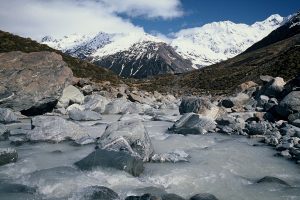Saving pennies and joules
Guest blogger: Vicki Connor, Communications Team Manager at the Energy Efficiency and Conservation Authority
Our demand for energy – electricity for our homes and petrol and diesel for our cars keeps rising. Some of it is down to population growth, but a lot of it is simply because as individuals we are using and doing more stuff. We drive more, buy more products and appliances and use them for longer.
The average NZ home has two televisions and chances are they are not small – plasma flat screen TVs tend to be between 42 to 100 inches, and can use around three times the electricity of a smaller traditional cathode ray tube set. We buy these things because many of us want them. We like watching TV and, if we can afford it, we want to watch it on a state-of-the-art, massive screen. Just because it looks better. It’s the same as wanting to drive instead of taking the bus. It can be more convenient, more comfortable, easier. And isn’t an easy life what many of us are after? And it’s a free country after all.
Convincing the majority of people to care enough to stop and think about their energy use is a hard task. Some people have the motivation – they could have a passion for the environment, be really skint, or have sick kids who need a warmer, drier home – but what about the rest ? We are fooling ourselves if we think that people will suddenly start to care because we tell them loudly that they should. The trick is to give people options, things that are easy to start doing and that actually improve their lifestyle. Make it about benefits and not sacrifice. Give people choice. Small steps.
Here’s some winter-time tips to save energy, and a few bucks.
The average household spends just under $2,000 on petrol and diesel in a year – about the same as they spend on energy for the home. You could save 20% of that by making a few small changes to your driving style and keeping your car well-tuned.
Did you know it takes more electricity to keep a DVD player in standby mode for a year than most use for playing DVDs during that year? Don’t leave your appliances on standby – turn them off at the wall. If you do this throughout the year, it could save you up to $75.
To make your home as warm, healthy and energy efficient as possible, you need good insulation. Poke your head into the attic and under the house to check if you have insulation. Look at investing in insulation if you have none, or if you already have insulation, make sure it is dry and has not shifted out of place.
Get an energy efficient showerhead. This could save you up to $500 a year if you use a lot of hot water. To check if you need a more efficient showerhead, run the shower – if it fills a 2-litre container in less than 12 seconds, you could save a lot of money by using a more efficient showerhead. These are available from hardware and plumbing stores.



